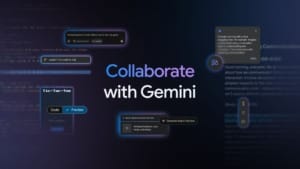Google’s AI initiative: Unveiling ‘Goose’ to redefine employee efficiency and innovation
Delve into Google's latest AI initiative with 'Goose', aimed at redefining employee productivity and innovation in engineering tasks.

In a move poised to redefine the landscape of employee productivity and innovation, Google, the global tech powerhouse, has quietly introduced ‘Goose’, an internally developed AI model. This revolutionary tool, crafted through collaboration between Google Brain, DeepMind, and the company’s internal infrastructure teams, signifies a paradigm shift in how engineering tasks are approached within the organization.
Table Of Content
Empowering engineers with AI
At its core, ‘Goose’ represents a leap forward in leveraging artificial intelligence to augment human capabilities. Drawing from Google’s extensive reservoir of engineering expertise amassed over 25 years, this large language model inherits its lineage from ‘Gemini’, its predecessor. Equipped with a robust understanding of Google’s proprietary technologies, ‘Goose’ emerges as a formidable ally for engineers, capable of addressing intricate queries, generating code using internal tech stacks, and even implementing code alterations based on natural language prompts.
A standout feature of ‘Goose’ lies in its expansive 28k token context window, a testament to its ability to handle complex development tasks. This comprehensive understanding allows ‘Goose’ to navigate and process vast amounts of information, positioning it as an indispensable asset for engineers grappling with intricate coding environments.
Transforming product development with AI integration
Google’s decision to roll out ‘Goose’ is part of a broader strategy to integrate AI into every facet of the product development lifecycle. During a recent earnings call, this strategic imperative, articulated by Google’s finance chief, Ruth Porat, underscores the company’s commitment to driving efficiency and innovation through AI-driven solutions. By harnessing tools like ‘Goose’, Google seeks to streamline operations, optimise resource allocation, and foster a culture of innovation across its diverse portfolio of products and services.
Beyond assistance: Fostering a culture of innovation
Yet, ‘Goose’ represents just one facet of Google’s multifaceted approach to AI integration. The company’s commitment to innovation extends beyond employee assistance, encompassing initiatives such as energy optimization in data centres and AI-driven advertising solutions for advertisers. These endeavours underscore Google’s steadfast dedication to leveraging cutting-edge technologies to tackle complex challenges and drive sustainable growth.
Moreover, amidst concerns surrounding job displacement due to automation, Google remains resolute in its commitment to its workforce. Philipp Schindler, Google’s chief business officer, affirms that AI implementations are designed not to supplant human jobs but to empower employees with enhanced tools and capabilities. As ‘Goose’ becomes increasingly integrated into daily workflows, employees can avail themselves of additional support from ‘Duckie’, Google’s internal chatbot, for guidance and assistance with development queries.
Looking ahead: Embracing the promise of AI-driven innovation
In conclusion, Google’s unveiling of ‘Goose’ heralds a significant milestone in pursuing AI-driven innovation and efficiency. As employees embrace this powerful tool to tackle complex engineering challenges, they pave the way for a future where human ingenuity and artificial intelligence converge to unlock new possibilities and drive transformative change.
















